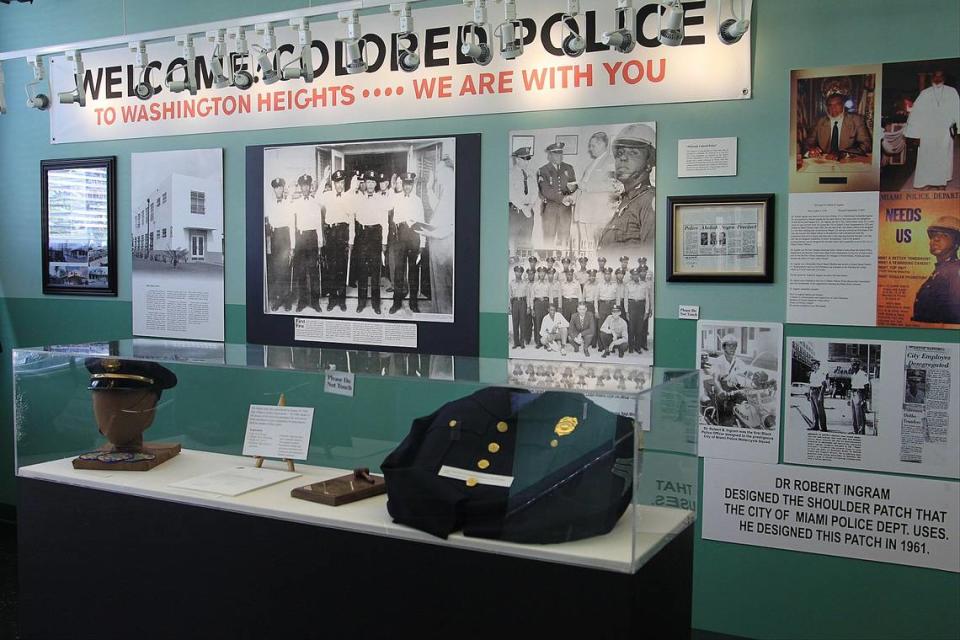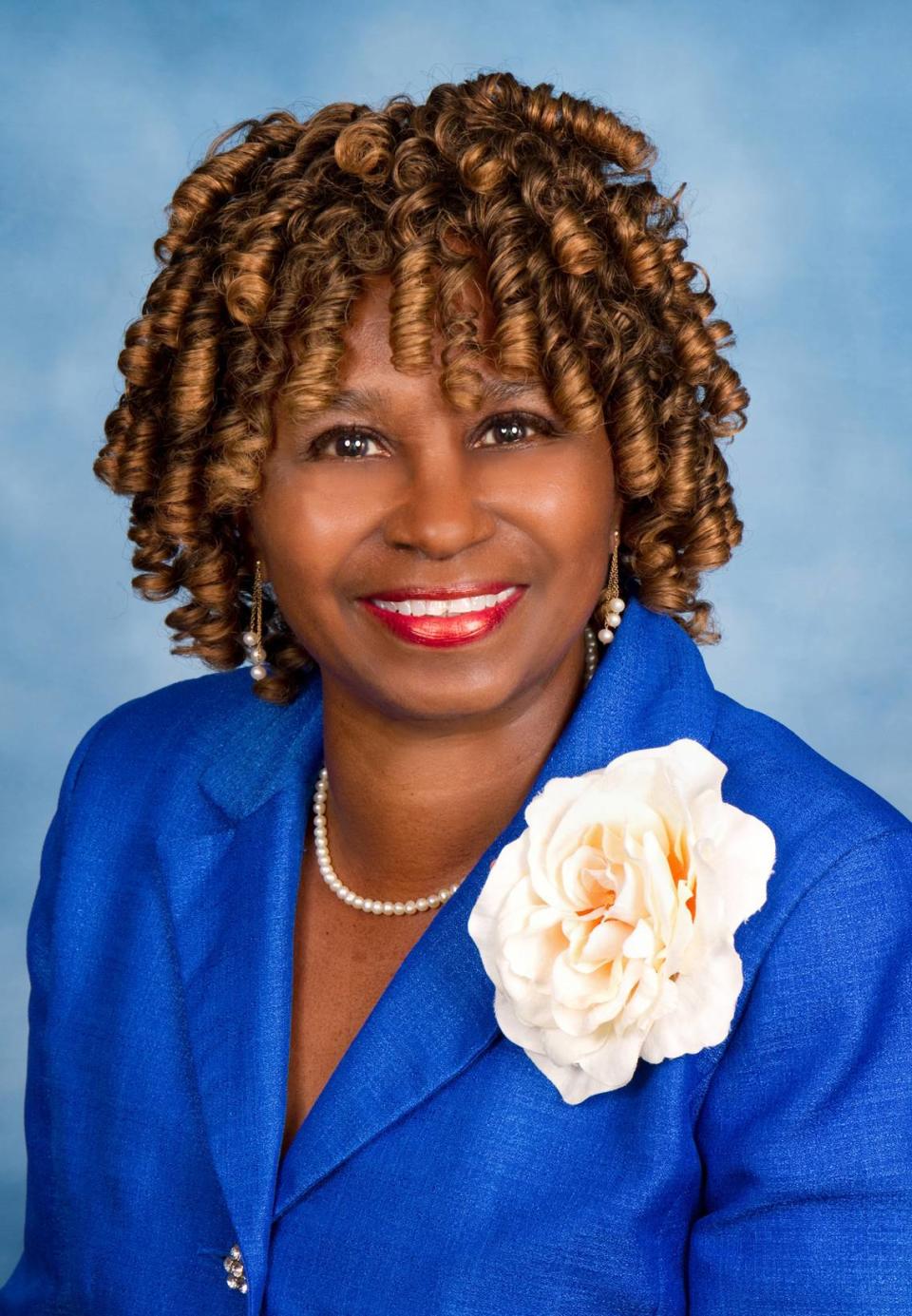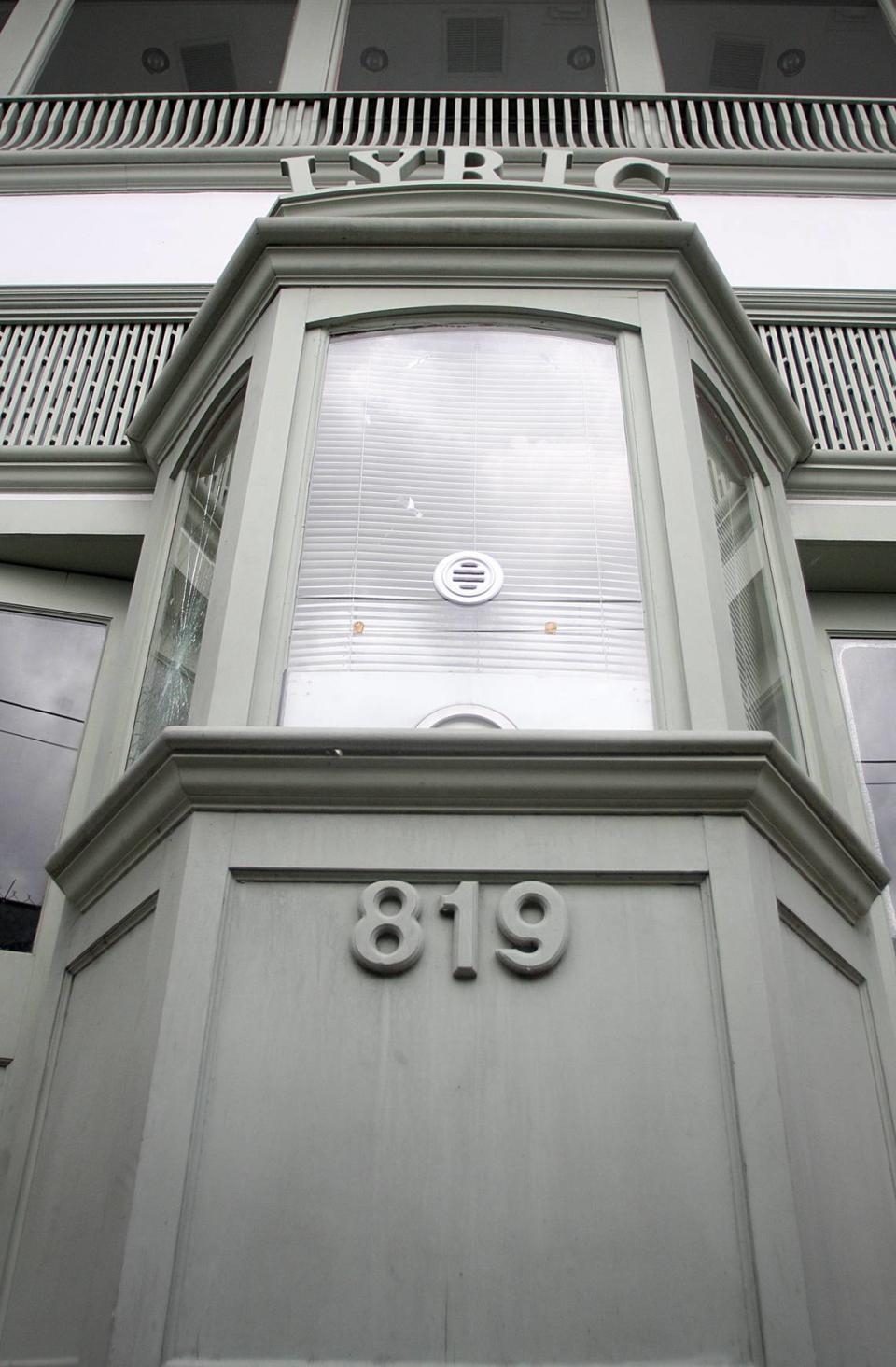The story of Overtown’s rich history can be found in this beautiful calendar
Flipping through the pages of Cecilia Stewart’s new Historic Overtown 2021 calendar is like walking down the streets of my childhood.
Overtown was where we settled when my mother moved here from Williston in Central Florida. The pictures and places she mentions conjure up many fond memories of Overtown. The site of the house we lived in at 135 NW Ninth St. is now a parking lot on the Ninth Street Corridor.
The house was once a stately, three-storied structure with mahogany stair banisters and a big front porch. The owners had turned it into a boarding house with cooking privileges, and my mother felt blessed to rent a large room there with two beds for her and her two children.
As I flipped through the pages of the calendar, I saw a picture of the Lyric Theater at Northwest Eighth Street and Second Avenue. In my mind, I crossed Second Avenue at the corner of Eighth Street to walk past the Greater Bethel African Methodist Episcopal Church. There, I saw an 8-year-old me in a pink dress and shiny black patent leather shoes, walking to Sunday school with my friend Nellie Dorsett.
Standing-room only Sunday forums
Another page placed me in front of Saint John Baptist Church, where during the month of February in the mid-1950s, Sunday afternoon forums were held and featured speakers like Dr. Martin Luther King Jr. and other notable Black men. The forums were held alternately at three of Overtown’s largest churches, which included the Historic Mt. Zion Baptist and Greater Bethel AME.
The choirs from the four black high schools — Booker T. Washington, Dorsey, Carver and Mays — provided the music on alternate Sundays.
Those were grand, Sunday afternoons and the forums always were standing-room only.

I turned to another page and there is a picture of the old Negro Precinct, now the Black Police Precinct/Courthouse Museum, the building where Judge Lawson Edward Thomas held court. Thomas was Miami Dade County’s first Black judge. His office was on Northwest Second Ave. between 10th and 11th Streets, and was built in 1936. I interviewed him there in the late 1970s.
I took a break from my calendar tour and spoke with Stewart about her project. How did she come up with the idea to do a calendar depicting the history and culture of Overtown?
Started with taking photos of Overtown landmarks
“The idea came to me about five years after I had been taking pictures of landmarks in Overtown,” she said. “Photography is my hobby and for some reason, I started taking these pictures. I was taking pictures of everything. Some of the places aren’t even there anymore.
“But even while I was walking around Overtown, taking pictures, I never thought I would be doing a history of Overtown in a calendar,” she said. “I even asked the Lord why I was taking all these pictures. Then, Dr. Enid Pinkney, who is my mentor, got me involved in historic preservation. It was clear to me then, and doing the calendar just seemed to be the thing to do,” said Stewart, who serves as the chairwoman of the Miami-Dade County Historic Preservation Board.
She is also a member of the Lemon City Cemetery Community Corp. and past chairwoman of the Overtown Community Advisory Board.

She believes the Lord wanted her to create the calendar to help educate the Overtown community and others about Black heritage, culture and history in Miami.
“The calendar is also a way to uplift the community by sharing my passion for photography and historic preservation. Many of the people now living in Overtown don’t know its rich history,” she said. “I hope the calendar helps.”

A native Miamian, Stewart is 63 and single. She lives in the Overtown house her dad left to her when he died.
“My daddy’s name was Ceasar Stewart and he was a longshoreman Local 1416 for 46 years,” she said, adding that she got her love of searching her heritage from her dad.
Although she was born in Overtown, Stewart grew up in Liberty City with her mother after her parents separated.
“But every summer my dad would take me to Fernandina Beach, Florida, to spend time with his family. He wanted me to know my people, to be connected with my roots. I have fond memories of those summers and our trips to American Beach — that was the Colored beach back then. People used to come from all over to go to that beach.”
Back home in Liberty City, Stewart attended Orchard Villa, West Little River and Holmes Elementary, before moving onto Charles Drew Middle School and Northwestern Senior High School, where she was voted Miss Northwestern in her senior year.
She graduated in 1975 and entered Howard University, where she earned a degree in microbiology. After graduating from Howard, Stewart took a job with the Prince George’s County Health Department, where she was an environmental sanitarian, inspecting nursing homes, restaurants, swimming pools and schools. She later was promoted to a disease control specialist for rabies.
“I stayed with the Prince George’s Health Department for more than 20 years. I came back home to care for my dad when he became ill. He died right here in our home in 2012,” she said.
She believes her dad would be proud of the calendar, which has a map on the back outside cover and instructions for the Historic Overtown Legacy Trek, which is a 25-minute walking route.
“My dream is to get this calendar into all Miami-Dade County Public Schools,” Stewart said. “I really want Overtown to be recognized throughout the year, not just for Black History Month. With the calendar, I have tried to capture our story in pictures. It is a keepsake because it shows the footprints of Blacks in the city of Miami.”
Persons interested in getting the calendar can go on line at, GoingOvertown.org for more information.

